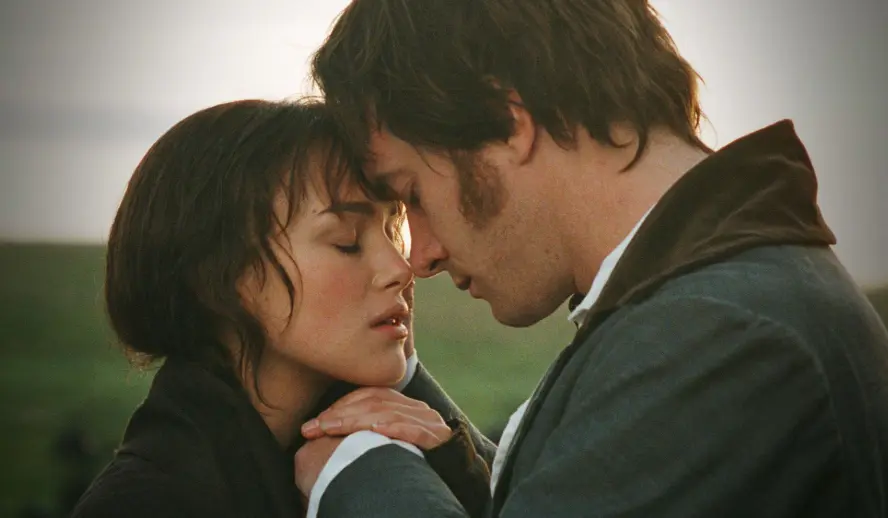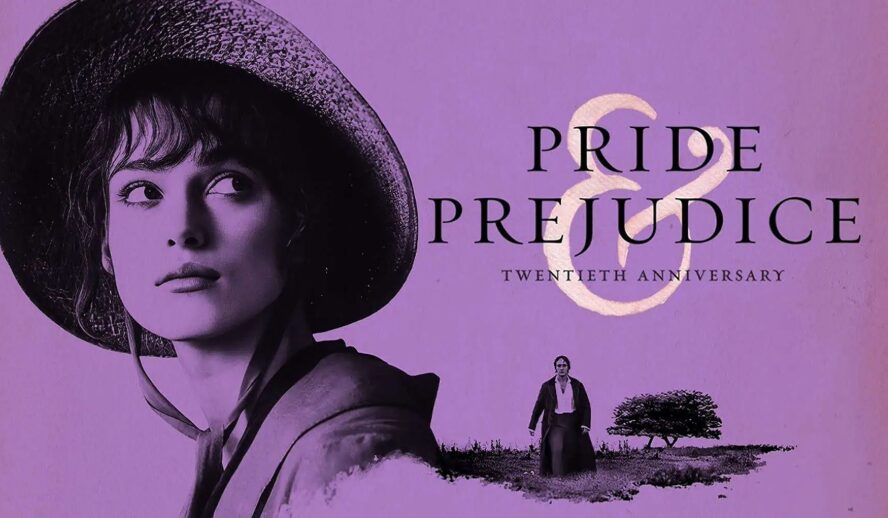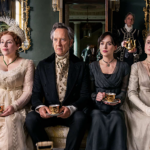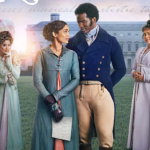
Joe Wright’s 2005 adaptation of the classic novel ‘Pride and Prejudice’ opens with a sunrise: a foggy, dewy English countryside gently illuminated by the first golden light of day. Twenty years later, that mist still has not lifted, and birds have not stopped chirping. It remains in the collective breath we all hold whenever Elizabeth Bennet’s skirt brushes wet grass, or when Mr. Darcy sneaks a glance at Elizabeth, aching, into the air. In theaters packed with nostalgic fans for its 20th anniversary re-release, ‘Pride and Prejudice’ proves once again that Jane Austen’s seminal novel is a timeless story, especially when filtered through Wright’s romantic lens and Kiera Knightley’s fiery performance.
The screening I attended was packed, mainly with women, who were laughing, cheering, and crying at all the film’s iconic moments. For many women, ‘Pride and Prejudice’ is not just a movie, but an emotional ritual. A mass remembering of how it feels to hope, to misjudge, to forgive. A collective swoon at what it means to be truly seen.
Things to do:
- Subscribe to The Hollywood Insider’s YouTube Channel, by clicking here.
- Limited Time Offer – FREE Subscription to The Hollywood Insider
- Click here to read more on The Hollywood Insider’s vision, values and mission statement here – Media has the responsibility to better our world – The Hollywood Insider fully focuses on substance and meaningful entertainment, against gossip and scandal, by combining entertainment, education, and philanthropy.
Jane Austen’s Timeless Love Story
Before diving into the film, I have to talk about the woman who made it all possible, Jane Austen. Jane Austen’s sharp wit and deep humanity made ‘Pride and Prejudice’ endure long before it ever hit the silver screen. Born in 1775, Austen grew up in a lively, creative household, fostering a close bond with her siblings, particularly her older sister Cassandra and brother Henry, who would later champion her literary career. Her life, marked by keen observation and a fiercely independent spirit, mirrored the heroines she created: women who refused to marry for convenience, who sought respect and affection over wealth. She briefly attended boarding school, but her real education occurred at home, in endless reading, writing, and spirited family debates.
WATCH THE TRAILER of the Film and the Revolution: ‘Can I Go Home Now?’
The Children Around the World Continue to Ask the question
Although the genteel world Austen captured in her novels looks romantic from a distance, it was a world of limited mobility for women. Austen herself famously only truly loved once, falling in love with friend Tom Lefroy in her late teens. Circumstances and social constraints forced the pair apart, and Austen never fell in love again. She turned down a secure marriage proposal from Harris Bigg-Wither, a wealthy family friend, valuing personal happiness over societal expectations. This radical belief echoes through Elizabeth Bennet’s fierce independence and intelligent defiance. Her decision not to settle, in a time when marriage was one of the only means of survival for women, is a reflection of the same fierce spirit that animates Elizabeth Bennet.
It’s tempting to romanticize Austen’s life alongside her novel, but the truth is more tragic. She died at just 41 years old, never having married, having battled an unknown illness in the final years of her short life. Yet, in her brief time, Austen crafted six major novels that continue to shape the way we love, live, and exist. ‘Pride and Prejudice,’ written by Austen when she was barely into her twenties, remains her most beloved work, a story brimming with wit, emotional intelligence, and a kind of radical hope. She believed that love could be both passionate and rational; the marriage must be based on mutual respect rather than mere convenience.
Related article: – Want GUARANTEED SUCCESS? Remove these ten words from your vocabulary| Transform your life INSTANTLY
Related article: ‘Fire Island’: A Modern Gay Twist on Jane Austen’s ‘Pride and Prejudice’ – Hollywood Insider
Austen’s characters are ordinary people drawn into intense emotional journeys; their very ordinariness, paired with sharp dialogue and poignant romance, keeps audiences returning again and again. The tension between social expectations and Austen’s independent heroines gives her oeuvre its enduring power. And it’s also what makes every great adaptation, including Wright’s 2005 version, feel so fresh and resonant even two centuries later. In ‘Pride and Prejudice,’ Austen cracked open a truth that still stings: love isn’t easy, or pure, or handed out for good behavior. It has to be fought for, not just against others, but against your pride, your fear, your stubborn blindness. Elizabeth Bennet is the spiritual daughter Austen dreamed up for herself: bright-eyed, quick-tongued, unafraid to call out hypocrisy even when it costs her. Every sharp word, every wounded glance between Elizabeth and Darcy, is Austen’s refusal to let the world make small what the heart knows to be big.
Related article: EVOLUTION: Every Ryan Gosling Role From 1995 to 2020, All Performances Exceptionally Poignant
Related article: EVOLUTION: Every Henry Cavill Role From 2001 to 2021, All Performances Exceptionally Poignant
Related article: How Hollywood Is Finally Taking Notice: Women Reshaping Hollywood’s Narrative
A Cinematic World of Glances
The magic of Wright’s ‘Pride and Prejudice’ is that it feels lived-in, especially considering the distance I often feel from Regency era films. One can smell the muddy fields, hear the old floors creak under dancing feet, and feel the dampness of morning dew on your cheek. Cinematographer Roman Osin frames the film like a dream half-remembered: faces flickering by candlelight, glances caught through slanting rain, rooms full of bodies bustling in beautiful dresses.
Nothing about the film feels polished or posed. It’s sometimes messy, boisterous, teeming with life, bringing to life the Regency era. Its pulse thuds under every wordless look and missed opportunity.
And then there’s the brilliant Dario Marianelli score: a delicate heartbeat of piano and strings that seems to emerge from Elizabeth’s very soul. It’s playful, aching, stubborn, full of restless energy that can’t find its place until it finally does, in love.
Related article: Understanding the Star Wars Timeline
Related article: A Tribute to Francis Ford Coppola: One of Cinema’s Unforgettable Directors | ‘Megalopolis’, ‘The Godfather’ & More
Related article: #metoo Revolution: Powerful Questions That Need Answers
Related article: FACT-CHECKED Series: Timothee Chalamet and 32 Facts about The Young Superstar
Related article: Bridgerton Fever: The Salacious Drama Is Netflix’s Biggest Original Show, Praised by a Growing Internet Fandom – Hollywood Insider
Bringing A Book to Life
Kiera Knightley’s Elizabeth is a blaze of contradiction: proud, joyous, cutting, tender. At just 20 years old, Knightley plays Lizzie not as a modern girl trapped in corsets, but as an independent creature fully of her time, hungry for something more than the airless futures offered to her. Watching her spar with Darcy, blink back tears at Charlotte’s (Claudie Blakley) confession of her proposal, and dance gracefully at a ball is filled with liveliness by Knightley’s biting performance.
At the time, relatively unknown, finding Matthew Macfadyen for Mr. Darcy is an unabashed stroke of genius. His Darcy, by contrast, seems almost allergic to his own feelings. There’s something crushingly human about him: the way he stumbles over his words, stiffens in crowded rooms. He’s not the smirking, polished hero of many classic tales; he’s a man dressed in the wrong armor, desperately trying to break free. And then, of course, there’s the hand flex. That small, almost involuntary stretch of fingers after the briefest touch. The entire audience gasped and cheered like we were one single body, remembering the electric terror of being touched by someone we love.
Even the minor players, from Charlotte’s trembling voice as she defends her marriage to the wonderful Mr. Bennet’s (Donald Sutherland) tears of joy upon his daughter’s acceptance of Darcy’s proposal, land like tiny arrows in our hearts.
Related article: Top 10 South Park Characters | Who Makes the Cut? Kenny, Chef, Butters, Towelie, Eric?
Related article: In-Depth Analysis | The Unexpected Queerness of ‘Bob’s Burgers’: Why the Show is an Animated Ally
Related article: A Tribute to the Great Donald Sutherland – Hollywood Insider
A Painful and Patient Love Story
What ‘Pride and Prejudice’ understands, better than almost any other love story, is that real love does not start with blissful understanding, but pure disaster. It sometimes starts with judgment, resentment, missed signals, and bruised pride. It starts in the rain and the mud and the wrong words at the wrong time. When Darcy finally walks across that misty field, collar undone and heart unguarded, we know exactly the journey he went on to get here, to change his mind and battle his prejudices. We also know what it will cost Elizabeth to meet him there, in the wreckage of their old selves, to build something new, beyond her pride.
The film understands that love is not fireworks; it’s slow, painful growth, and it forces us to wait and watch. It’s learning to see another person, beyond their status or past, and the desire to be seen yourself. Elizabeth and Darcy do not fall into each other’s arms at first sight, they hurt each other. They misread each other’s intentions, wound each other’s pride, and expose each other’s deepest insecurities. It’s from these fractures that they become capable of true love. The love story hurts first because it demands growth, asking its characters (and its audience) to confront their assumptions before they can find their happy ending. In doing so, the film is not just a romance, but a profound coming-of-age story for both Elizabeth and Darcy.
The final “Mrs. Darcy” scene is beautifully tender. It’s the sunrise finally cresting over a long, restful night. Soft, earned, and cathartic.
Related article: In-Depth Analysis | The Unexpected Queerness of ‘Bob’s Burgers’: Why the Show is an Animated Ally
Related article: EVOLUTION: Every Chris Evans Role From 1997 to 2020, All Performances Exceptionally Poignant
Related article: Hollywood and Florence/Firenze: A Cinematic Love Story
Why We Still Can’t Let Go
Two decades later, Wright’s ‘Pride and Prejudice’ holds onto us because it never treated love like an easy thing. It treats love like mutual work, giving space for the courage and radical seeing done by partners. Elizabeth does not just come to recognize Darcy’s goodness, she has to recognize her own capacity for error. Darcy does not just get to have Elizabeth, he has to become a man worthy of her love.
That slow, aching work, full of humiliations, tenderness, and mistakes, feels more revolutionary now than ever. In a culture obsessed with instant connection, ‘Pride and Prejudice’ reminds us that good things take time and dedication.
And maybe, that’s why, 20 years after the film’s release and two centuries after the novel’s publishing, we still gasp for the hand flex. We still hold our breaths as the pair dances. We still cry in the meadow. We still laugh at Mr. Collins (Tom Hollander) and weep at Mr. Bennet. Because, deep down, we are all hoping for the same thing. To be wrong about someone, to be forgiven for it, to be seen, and to be loved.
By Leeann Remiker
Click here to read The Hollywood Insider’s CEO Pritan Ambroase’s love letter to Cinema, TV and Media. An excerpt from the love letter: The Hollywood Insider’s CEO/editor-in-chief Pritan Ambroase affirms, “We have the space and time for all your stories, no matter who/what/where you are. Media/Cinema/TV have a responsibility to better the world and The Hollywood Insider will continue to do so. Talent, diversity and authenticity matter in Cinema/TV, media and storytelling. In fact, I reckon that we should announce “talent-diversity-authenticity-storytelling-Cinema-Oscars-Academy-Awards” as synonyms of each other. We show respect to talent and stories regardless of their skin color, race, gender, sexuality, religion, nationality, etc., thus allowing authenticity into this system just by something as simple as accepting and showing respect to the human species’ factual diversity. We become greater just by respecting and appreciating talent in all its shapes, sizes, and forms. Award winners, which includes nominees, must be chosen on the greatness of their talent ALONE.
I am sure I am speaking for a multitude of Cinema lovers all over the world when I speak of the following sentiments that this medium of art has blessed me with. Cinema taught me about our world, at times in English and at times through the beautiful one-inch bar of subtitles. I learned from the stories in the global movies that we are all alike across all borders. Remember that one of the best symbols of many great civilizations and their prosperity has been the art they have left behind. This art can be in the form of paintings, sculptures, architecture, writings, inventions, etc. For our modern society, Cinema happens to be one of them. Cinema is more than just a form of entertainment, it is an integral part of society. I love the world uniting, be it for Cinema, TV, media, art, fashion, sport, etc. Please keep this going full speed.”
More Interesting Stories From The Hollywood Insider
– Want GUARANTEED SUCCESS? Remove these ten words from your vocabulary| Transform your life INSTANTLY
– A Tribute to Martin Scorsese: A Complete Analysis of the Life and Career of the Man Who Lives and Breathes Cinema
– Do you know the hidden messages in ‘Call Me By Your Name’? Find out behind the scenes facts in the full commentary and In-depth analysis of the cinematic masterpiece
– A Tribute To The Academy Awards: All Best Actor/Actress Speeches From The Beginning Of Oscars 1929-2019 | From Rami Malek, Leonardo DiCaprio To Denzel Washington, Halle Berry & Beyond | From Olivia Colman, Meryl Streep To Bette Davis & Beyond
– In the 32nd Year Of His Career, Keanu Reeves’ Face Continues To Reign After Launching Movies Earning Over $4.3 Billion In Total – “John Wick”, “Toy Story 4”, “Matrix”, And Many More
____________________________________________________________________________









